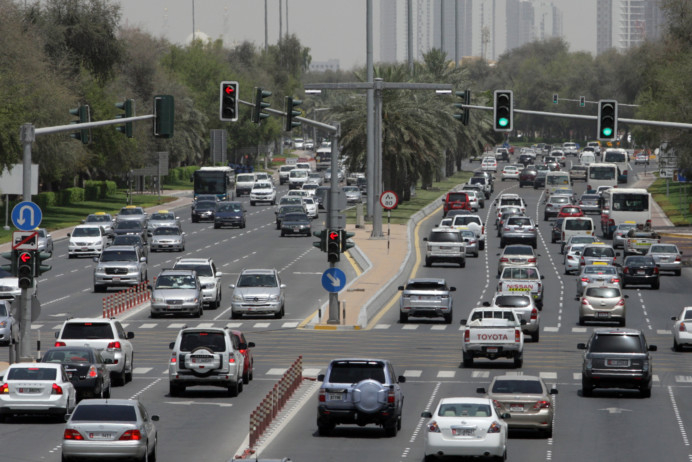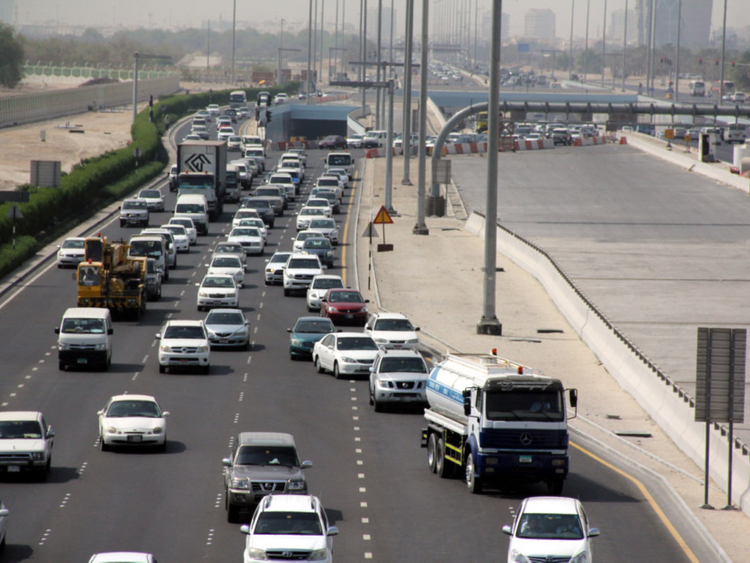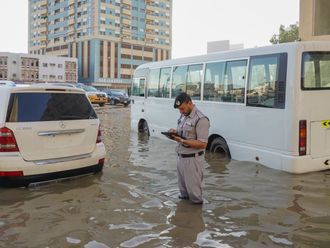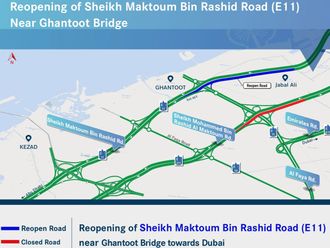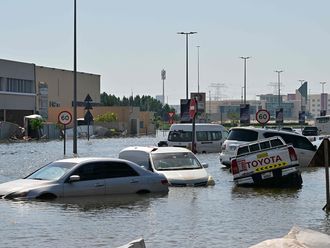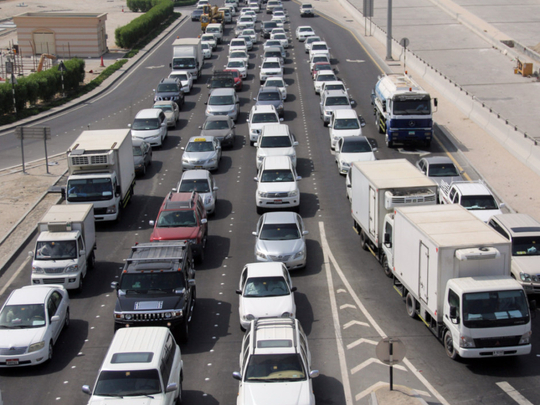
Abu Dhabi
Traffic tolls will shortly be introduced in Abu Dhabi to ease traffic on certain roads, according to a law issued by President His Highness Shaikh Khalifa Bin Zayed Al Nahyan.
The Department of Transport, which regulates transportation in the emirate of Abu Dhabi, will be authorised to determine the areas where the toll will be implemented, the amount to be paid and the operation times, according to the law, which took effect from the date of publishing on December 31. The department’s recommendations will then be submitted to the Abu Dhabi Executive Council for approval.
Law No. 17 of 2017 also stipulates that the department, through its Integrated Transport Centre, will be responsible for collecting the tariff from vehicle owners that pass through the toll areas. The ways in which the money will be collected is yet to be determined.
The law exempts ambulances, public buses, motorcycles, and vehicles of the Armed Forces and Civil Defence from the upcoming tolls. However, other drivers who cross a toll without paying can face fines up to Dh10,000, and it will be illegal to conceal a vehicle’s number plate or undertake other measures to avoid paying the toll.
Vehicle owners will also have to eventually subscribe to the toll system before passing through the tolls, and abide by all other applicable regulations. Transport authorities will also refer all monitored violations to the competent authority to take the necessary measures against offenders.
The department is expected to release further information on the upcoming traffic tolls soon, and these will be the first such charges in the emirate. So far, only Dubai imposes Salik road tolls on motorists.
Speaking to Gulf News, traffic experts said the new charges could encourage motorists to consider alternative modes of transport. Road tolls in urban areas not only help manage traffic flow and make roads safer but also help to reduce pollution, they added.
“In general, traffic tolls are used to manage traffic and minimise congestion. They make tolled routes less attractive due to the added cost of travel, thus making alternative roads more preferred and diverting traffic towards them,” Tawab Kazemi, managing director at traffic consultancy 4E Road Safety and Transport Consultants, told Gulf News.
Kazemi added that some tolls are also used to discourage entry into certain areas during certain times of day.
“For example, London implements zone-specific tolls to reduce the presence of cars during the working week in certain central areas, and this may also be a model that traffic authorities choose to adopt. At any rate, I am certain that they will carry out a detailed study to identify roads and locations that will benefit from the traffic tolls,” he explained.
Another effect of road tolls is to encourage greater use of both public modes of transport, and sustainable practices like carpooling.
“People also often prefer to live close to where they work in order to avoid having to pay the toll, but in the end, the overall effect of these tolls will depend on the toll amount itself,” Kazemi said.
Khalid Javed, senior instructor at the Emirates Driving Institute, said traffic tolls can also be used to raise funds for road maintenance and construction. International statistics also show that tolled roads have lower fatality rates compared to other roads overall.
UAE motorists are already familiar with Dubai’s Salik system, which was introduced in 2007 to reduce the traffic congestion endemic to Dubai. At present, there are six toll gates, including two on its main arterial route, the Shaikh Zayed Road. Motorists must pay Dh4 upon passing a toll gate.
While details about the location of Abu Dhabi’s toll gates are still unclear, residents have been speculating that Abu Dhabi’s Shaikh Zayed Street, which faces some congestion in the early morning and evening hours, could be the first to be tolled. The route already features variable message boards that resemble Dubai’s Salik gates.
“The traffic tolls are most likely to be implemented on the busiest roads, as well as on routes that see the most accidents because tolls often calm driver behaviour. In Abu Dhabi, congestion is less compared to other emirates. But, the most congested roads are Al Meena 91, Musafah and E11 street towards new Shahamah,” Javed said.
Some residents have expressed concern that tolls on heavily-used roads will divert traffic to other routes with lesser traffic capacity, thus creating congestion there as well.
“In general, toll gates help balance out traffic flow. For instance, the delays on Shaikh Zayed Road have been reduced and there is now more traffic on roads that were not used as often before, like Mohammad Bin Zayed Road for instance,” Kazemi said.


